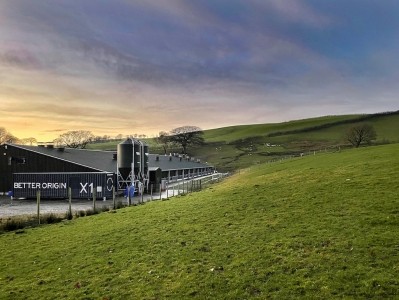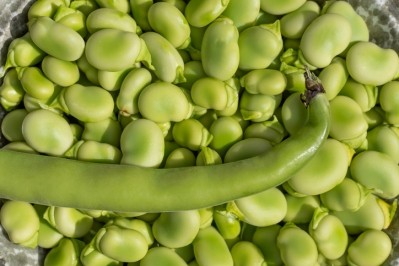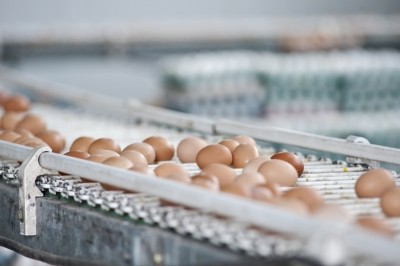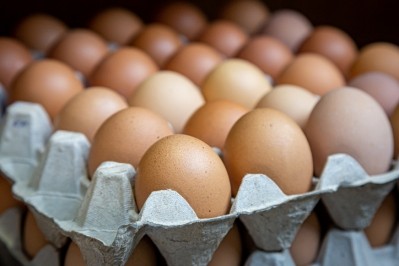UK supermarket chain championing use of insects in feed to hit carbon neutral egg goal
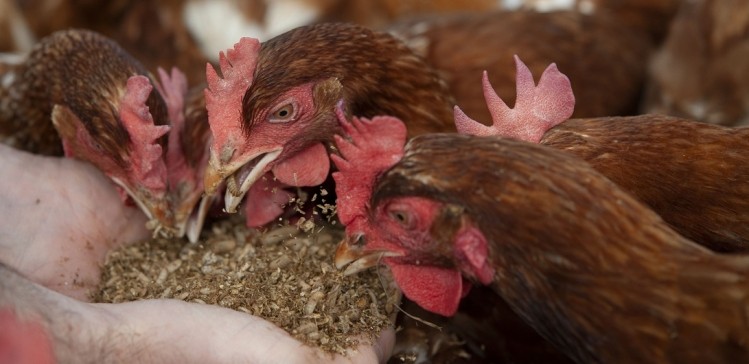
Larvae from those mini farms - ten X1 containers - will be used to feed the hens, who will also receive a supplementary diet of British beans, peas and sunflower seeds.
The UK retailer wants to reduce the use of soy feed on those farms as it works towards becoming the first supermarket to launch own brand carbon neutral eggs in 2022.
“Reducing soy from livestock feed is one of the key challenges for farms needing to lower their carbon footprint and we wanted to help find a solution. An insect diet could suit our hens better - they seem to enjoy it - and the nutritional and added health benefits are notable,” said Sophie Throup, head of agriculture, Morrisons.
The project is also see as a solution to the retailer’s fruit and veg waste, which will be used as a rearing substrate for the larvae in question. The supply will come from Morrisons fruit and veg site in Yorkshire, creating one of the UK’s first ‘circular waste’ feeding schemes within the same company to produce food. Over 30 tons of fruit and veg waste will be recycled each week.
Blueprint for circular waste-to-food systems
Better Origin’s vision is for the initial rollout to eventually scale across all egg farms that supply the retailer, said Fotis Fotiadis, co-founder of that company, which is a University of Cambridge spin-out.
The commercial rollout will serve as a blueprint for a fully circular waste-to-food system, capable of transforming not only poultry farms, but also aquaculture, pigs and pet feed sectors.
“The mini-farm process is simple,” Fotiadis told FeedNavigator last year. “The eggs and a biomass are put in one end and trays of fully-grown black soldier larvae are taken from the other.”
The larvae are grown over 7 to 14 days depending on the type of feed required. When ready, they are harvested and delivered direct to the animals. The system does not involve any processing or the use of any additives.
What is truly innovative about Better Origin’s X1 mini farm, said the CEO, is that it harnesses Artificial Intelligence (AI) to absolve the farmer from having to manage the process.
“It is completely autonomous. It uses camera technology in combination with an algorithm to ‘self-calculate’ optimum parameters such as feed levels, without any human input. Basically, anything that a farmer would do, this system does automatically,” said Fotiadis.
Better Origin maintains remote control over all of its systems in the field and intervening remotely if necessary. Farmers can also find out what is going on inside the X1 at any given time via an app-based user interface.
The company has carried out trials in conjunction with Bristol University to substantiate the benefits of feeding larvae to laying birds. “In trials we have seen a 5% increase in yield as well as an improvement in egg quality and bird activity – high welfare birds produce more eggs,” the CEO reported in August 2020.
Net zero carbon goal
Morrisons has embarked on a program to be completely supplied by net zero carbon British farms by 2030, five years ahead of the market.
Over the next nine years, the retailer plans to work with its 3,000 farmers and growers to produce affordable ‘net zero’ carbon meat, poultry, fruit and vegetables. As part of that initiative, the supermarket group said it will also engage with universities, farming and countryside organizations and carbon experts.
